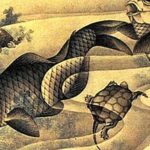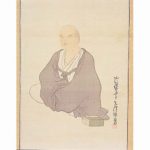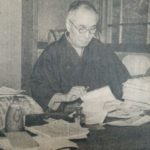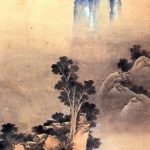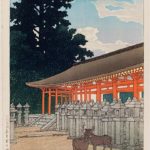Table of Contents
Masaoka Shiki's haiku poems
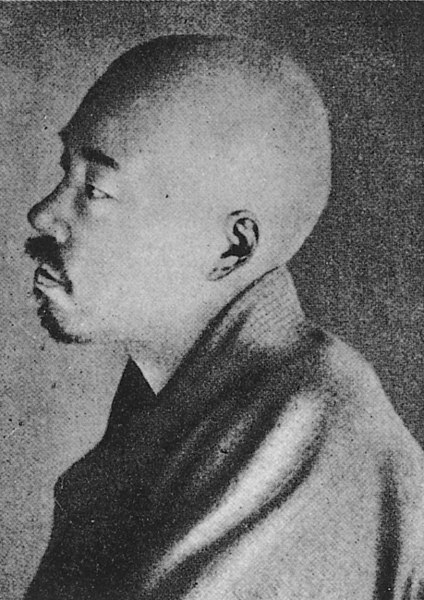
Masaoka Shiki (1867-1902) put effort into poetry activities to bring about innovation in the haiku from the Edo period. In the seven years of his later years, he kept making haiku while suffering from tuberculosis.
In 1867, Masaoka Shiki was born in Iyo Province (today’s Ehime Prefecture). He was a son of the lower-class samurai who died 40 years old in 1872. With the support of his mother, he entered the Iyo clan school Jobankai. He began to learn haiku when he was 18. But Shiki got the illness which he suffered from ever since. Tuberculosis was fatal disease at that time and 21 years young haiku poet vomited blood for the first time. Shiki (子規, hototogisu) means little cuckoo in Japanese. He named own pen name after the bird because a little cuckoo was described as a bird sing so much that it vomit blood.
Related Post
He entered Tokyo Imperial University (today’s Tokyo University) in 1900 and gave the lessons of haiku for Kawahigashi Hekigoto (1873-1937) and Takahama Kyoshi (1874-1959). Shiki gave up to graduate from Tokyo Imperial University and started to work at Nippon Shinbun Newspaper. While working as a journalist, he continued to publish haiku poems. During the Sino‐Japanese War (1894‐95) he went to the front. But that made worse of tuberculosis and Shiki went home. He had been in ill bed and suffered in his later years but he composed the jolly and creative haiku poems.
Other famous Japanese poets
<Japanese>
醉ふて寐て 夢に泣きけり 山櫻
Yote nete/ Yume ni naki keri/ Yamazakura
<English>
I got drunk, a sleep.
And wept on the dream.
A wild cherry blossoms.
<Japanese>
ひらひらと 風に流れて 蝶一つ
Hira hira to/ Kaze ni nagarete/ Chou hitotsu
<English>
Flutteringly,
Floating in the breeze,
A single butterfly.
<Japanese>
奈良の町の 昔くさしや 朧月
Nara no machi no/ Mukashi-kusashi ya/ Obor-zuki
<English>
The town of Nara is
Really old-fashioned.
The hazy moon.
Nara temples as World Heritage Site
<Japanese>
汽車見る見る 山を上るや 青嵐
Kisha miru-miru/ Yama wo noboru ya/ Aoarashi
<English>
The steam train very quickly
Climb the mountain.
The wind blow through fresh verdura.
<Japanese>
中をふむ 人や青田の 水車
Chu wo fumu/ Hito ya aota no/ Mizuguruma
<English>
People step in the air.
The water wheel
At the green paddy fields.
<Japanese>
夏の月 提灯多き ちまた哉
Natsu no tsuki/ Chochin ooki/ Chimata kana
<English>
The summer moon.
There are a lot of paper lanterns
On the street.
<Japanese>
柿くへば 鐘が鳴るなり 法隆寺
Kaki kueba/ Kane ga naru nari/ Horyuji
<English>
<Japanese>
赤とんぼ 筑波に雲も なかりけり
Akatonbo/ Tsukuba ni kumo mo/ Nakari keri
<English>
The red dragonfly.
At the Tsukuba, no cloud
Is seen.
<Japanese>
白萩の しきりに露を こぼしけり
Shirahagi no/ Shikirini tsuyu wo/ Koboshi keri
<English>
The white bush clovers
Drop the dewdrops
Frequently.
<Japanese>
橘や 風ふるくさき 長谷の里
Tachibana ya/ Kaze fukukusaki/ Hase no sato
<English>
The tachibana trees.
The wind is old-fashioned
At Hase villege.
tachibana:Inedible green citrus fruit native to Japan
<Japanese>
松山や 秋より高し 天守閣
Matsuyama ya/ Aki yori takashi/ Tenshukaku
<English>
Oh, Matsuyama.
Higher than autumn,
The castle tower.
*Matsuyama:Matsuyama city, Ehime Province. Matsuyama Castle is famous sightseeing spot.
The autumn haiku poem examples by Japanese famous poets
<Japanese>
寒さうに 母の寝給う 布団哉
Samusou ni/ Haha no netamou/ Futon kana
<English>
It seems as cold,
My mother has a sleep
In the futon.
<Japanese>
面白や かさなりあふて 雪の傘
Omoshiro ya/ Kasanari oute/ Yuki no kasa
<English>
It’s interesting.
Lied one upon another
The unbrellas in the snow.
<Japanese>
いくたびも 雪の深さを 尋ねけり
Ikutabi mo/ Yuki no fukasa wo/ Tazune keri
<English>
Repeatedly,
How is the snow depth?
I asked.
*Masaoka Shiki had been ill in bed of spinal caries by tuberculosis and died of it. He couldn’t see the snowy vew of his garden and asked mother or sister the amount.
<Japanese>
土ともに 崩るる崕の 霜柱
Tsuchi tomoni/ Kuzururu gake no/ Shimo-bashira
<English>
With the mad,
Collapsed on the scarp,
The frost columns.
Books about Masaoka Shiki
Other famous Japanese poets


